‘We are the filth in the society so we live in filth too,’ said Sudha Devi, a 25-year-old resident of the Ekta Camp Jhuggi in Delhi’s Pitampura. Each day, Devi wakes up at 5 am and walks to the nearby park to defecate. This is much before the men of the house wake up. She walks with five of her other friends to escape the dangerous encounters with intoxicated men on their way.
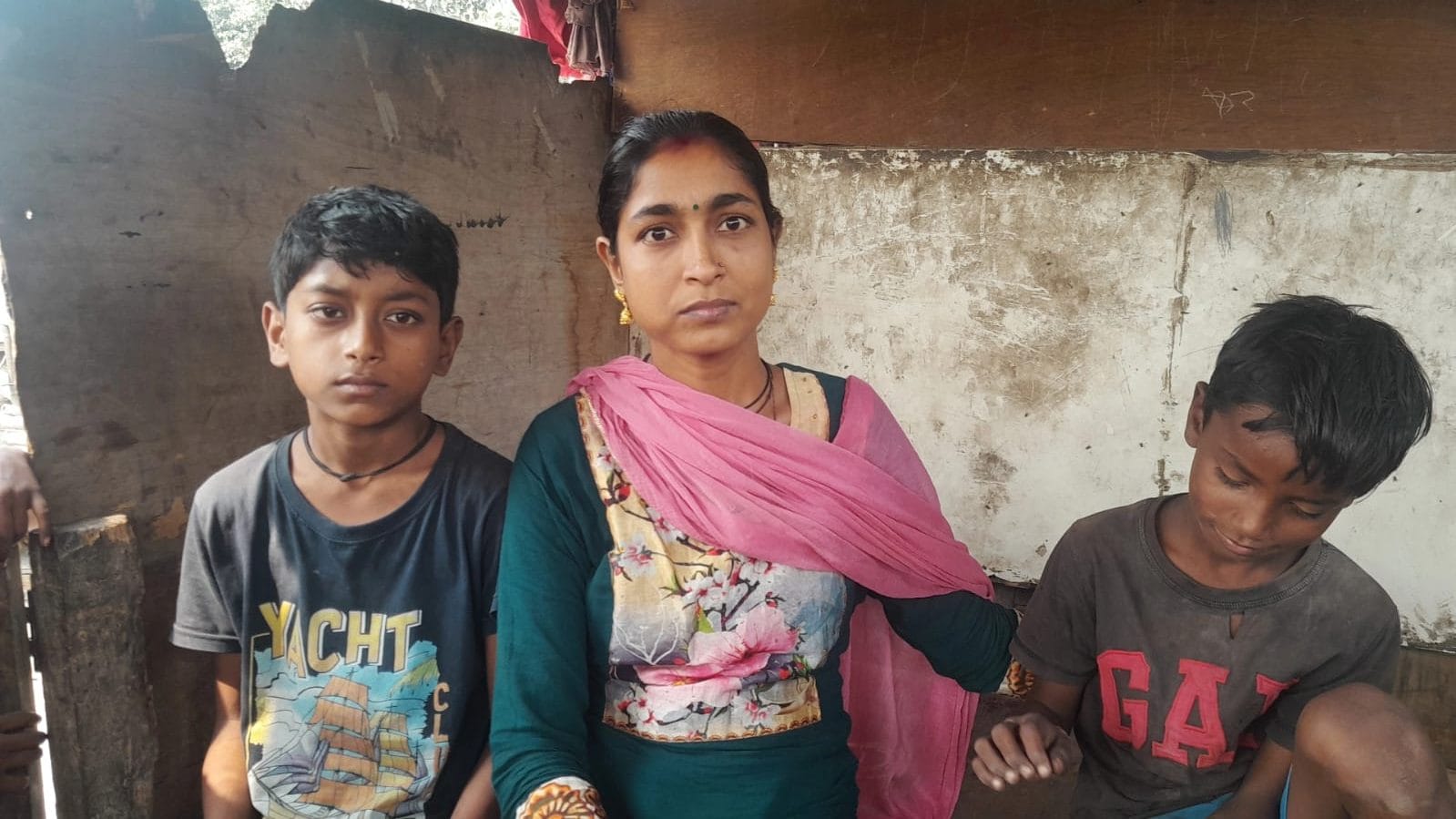
The jhuggi, that falls under the Shalimar Bagh assembly constituency is home to 10,000 people, most of them being migrants from Uttar Pradesh and Bihar. Women make up 40% of the population in the slum. According to Pradhan Babloo Kumar Rai, sanitation, water supply, and law and order are some of the major issues in the area. ‘I have lived here for 20 years now and no government has done us any good,‘ added Rai.
According to data released by the Economic survey of Delhi 2023-24, there are 675 JJ bastis in the capital with more than 3 lakh jhuggis that are home to about 1.5 million people.
According to data released by the Economic survey of Delhi 2023-24, there are 675 JJ bastis in the capital with more than 3 lakh jhuggis that are home to about 1.5 million people. The Delhi Urban Shelter Improvement Board (DUSIB) is entrusted with the responsibility of providing various kinds of services to slum dwellers to ensure the qualitative improvement of slum settlements in the national capital. One of the services provided by DUSIB include public toilets in the jhuggi.
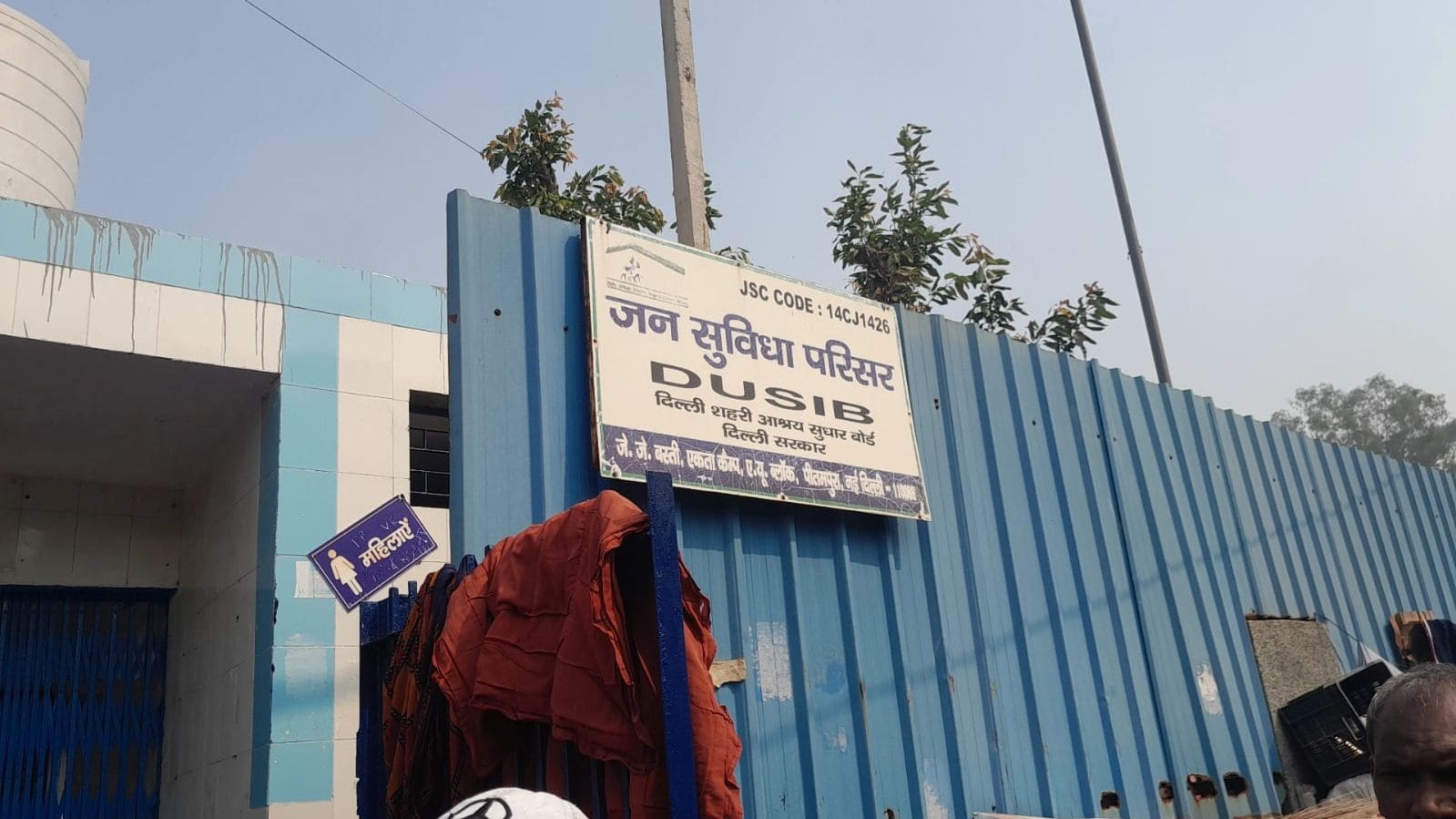
The morning visit to the park
While you might want to press your nose between your fingers to avoid the stench in the one and only DUSIB public toilet in the slum, the people of the Ekta Camp Jhuggi are left without an option. ‘There are twenty latrines for men and twenty for women and only 2-3 out of these are functional,‘ an anguished Bucchhiya Devi tells me. Some latrines are clogged, some broken and others are left with no water supply.
Despite requests and complaints, the toilets remain unusable. This pushes the people, including the women of the slum to defecate in the open. ‘Mard ki duniya mei, aurat kaha jayegi?‘ (In the world of men, where will the women go?), Bucchiya Devi asked me, expecting an answer. We had none.
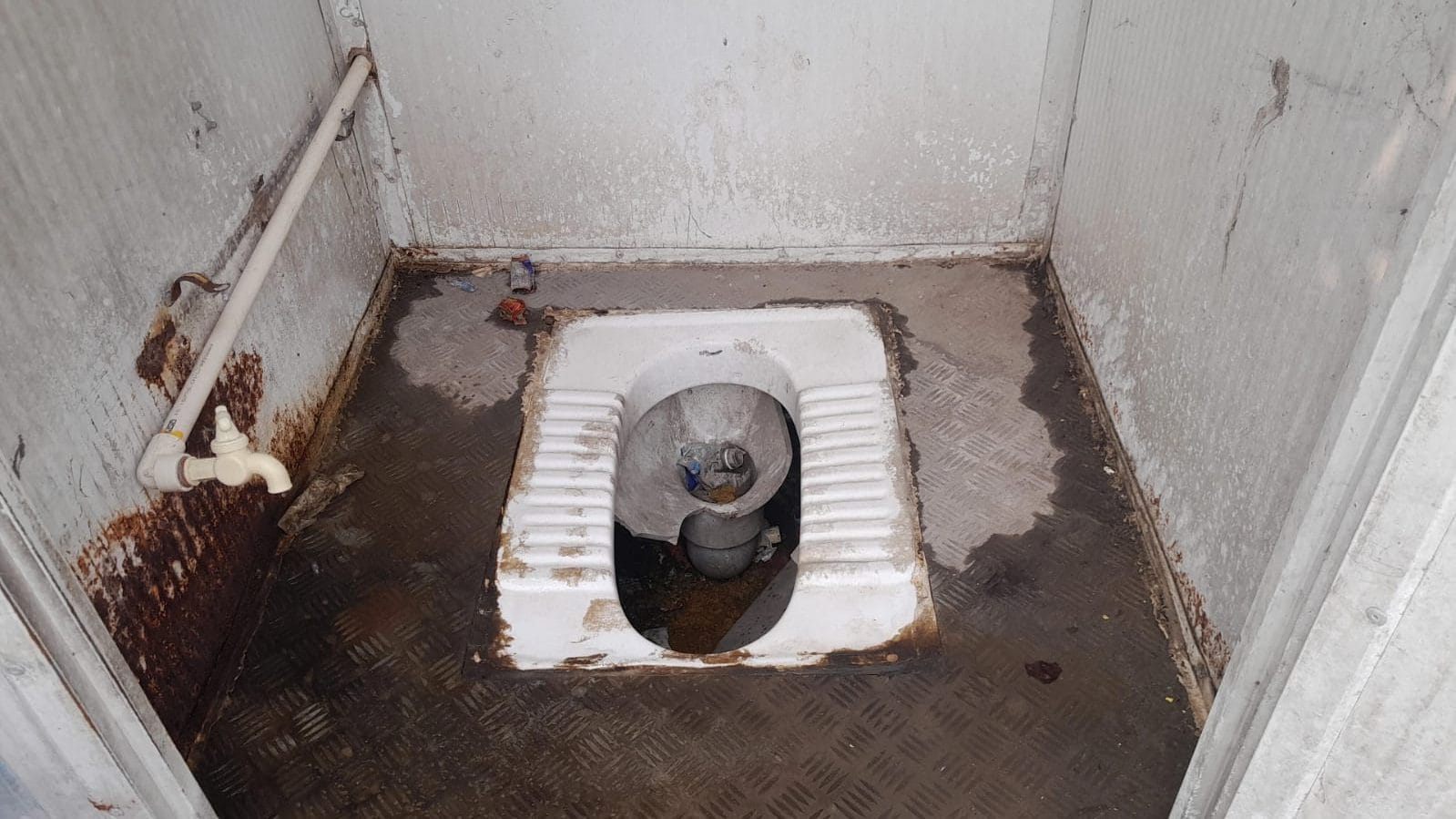
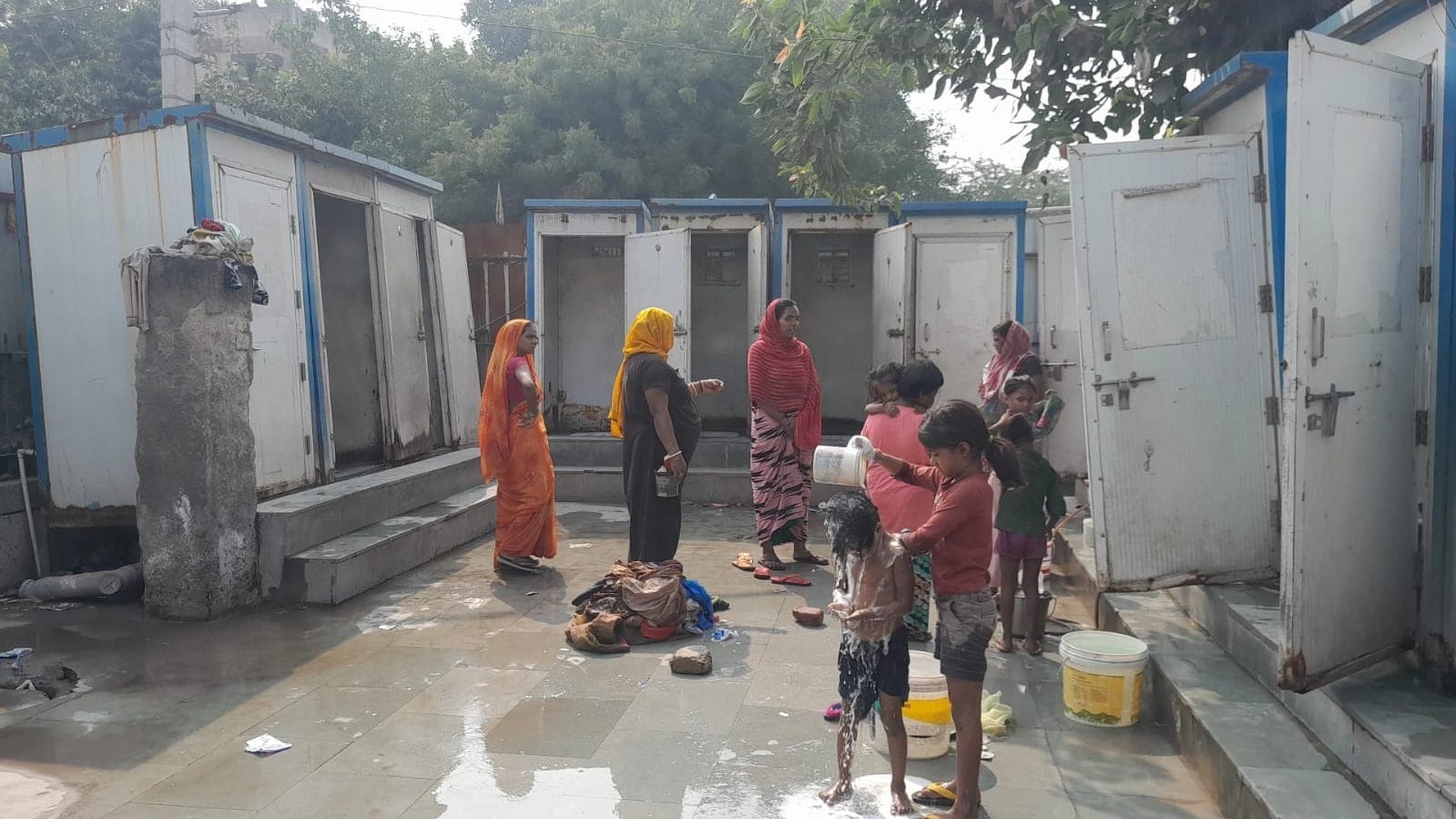
However, Bandana Kumari, MLA from the Shalimar Bagh Assembly constituency claims that none of the latrines are broken or clogged. ‘This is a baseless claim, I can guarantee you that all the seats have been completely repaired and the toilet is functional,’ said Kumari. However, the dwellers’ experiences starkly differ from the MLA’s claim.
‘Didi, I will tell you a very funny story,’ said the ten-year-old Lakshmi. ‘My friend Neha peed in her pants after we refused to accompany her to the park since we were playing marbles,‘ she laughed pointing towards Neha. During the day, when Lakshmi and her friends are alone at home and their mothers are away for work, they are not allowed to go to the park all by themselves. Their mothers fear that their daughters might be harmed. ‘Didi, they pick up girls, how could I have gone alone?‘ Neha asked us, as her eyes dropped in embarrassment.
During the day, when Lakshmi and her friends are alone at home and their mothers are away for work, they are not allowed to go to the park all by themselves. Their mothers fear that their daughters might be harmed.
‘Humari ladki ki izzat bachaane ke liye unhe akela nahi jaane dete (we don’t send them alone to protect their dignity,’ said Bucchhiya Devi while she told me how a 12-year-old girl was raped by a drunkard when she had gone to the park alone.
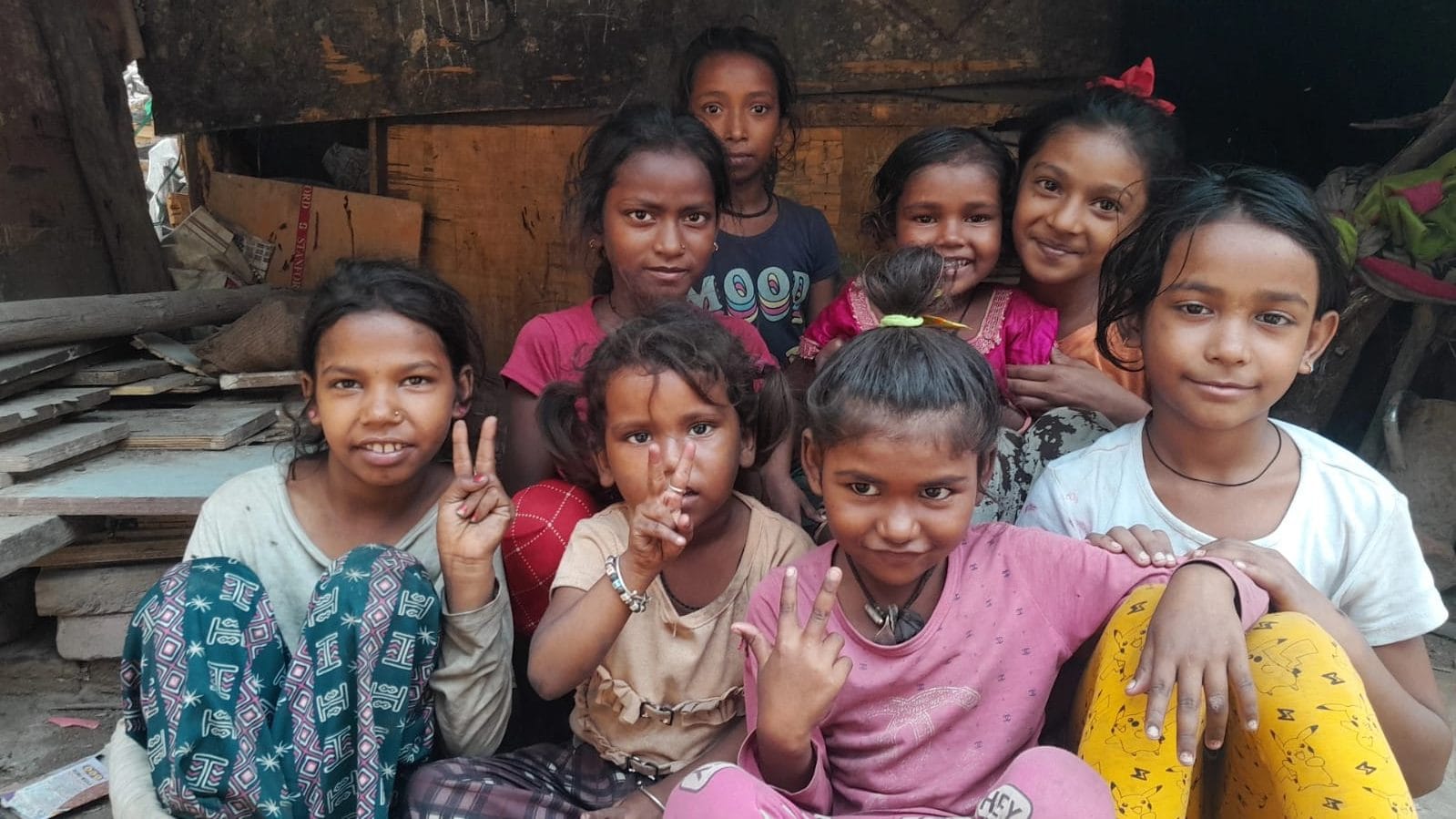
As these women hide “behind the beautiful forevers”, their conditions are met with ignorance not just by our country’s politicians but by each one of us. While those in cars roll up their glasses, others in an e-rickshaw pinch their nose and turn their gaze away.
One tap in the jhuggi
As Lakshmi and her friends took me around the slum, we reached the spot where the only tap in the slum was installed. Placed next to a narrow platform just above the neher (river), the tap was the jhuggi’s only source of water. It is used by the dwellers for drinking, bathing, cleaning, and washing.
Madhu, one of the three girls huddling together on the platform, was washing clothes. Her mother works as a maid in a bungalow and her father drives the e-rickshaw for a living. ‘Each morning when we return from the park, my mother and I have to line up in the queue for hours to fetch water for our home,‘ said Madhu. Some days even after standing in the queue for long, the water runs out and Madhu returns home empty handed. On such days, the dwellers call for a water tanker.
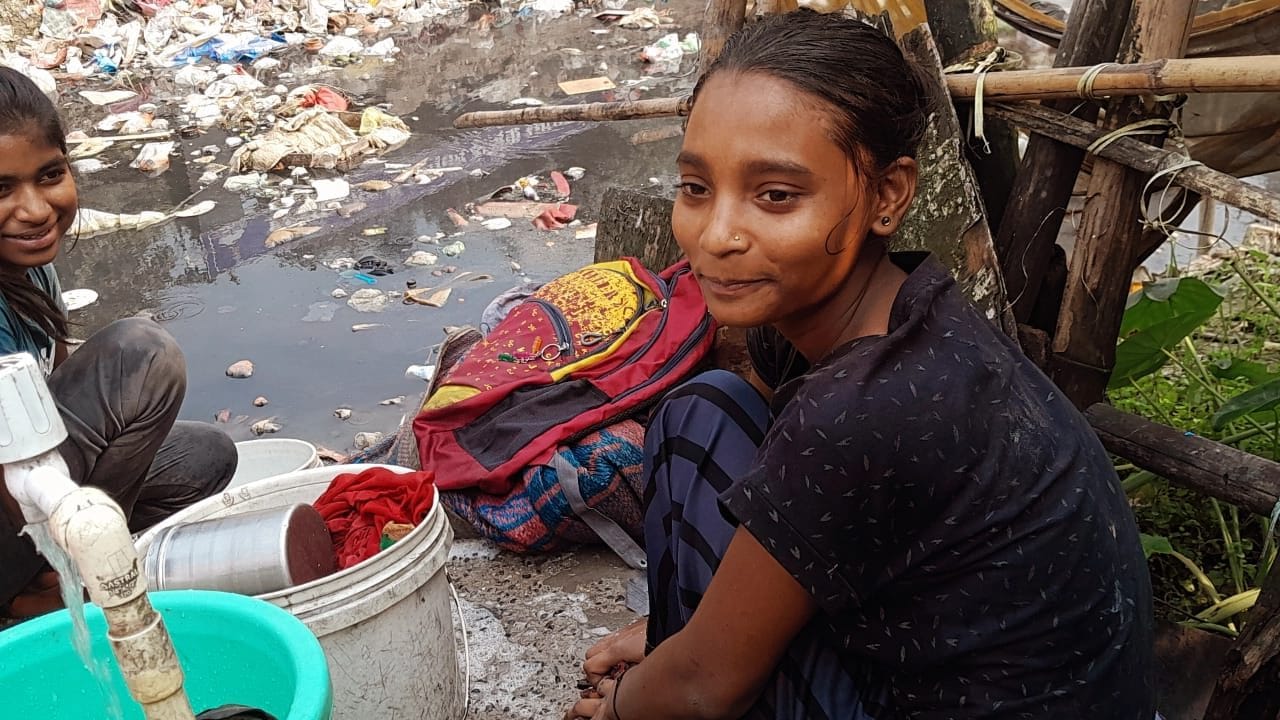
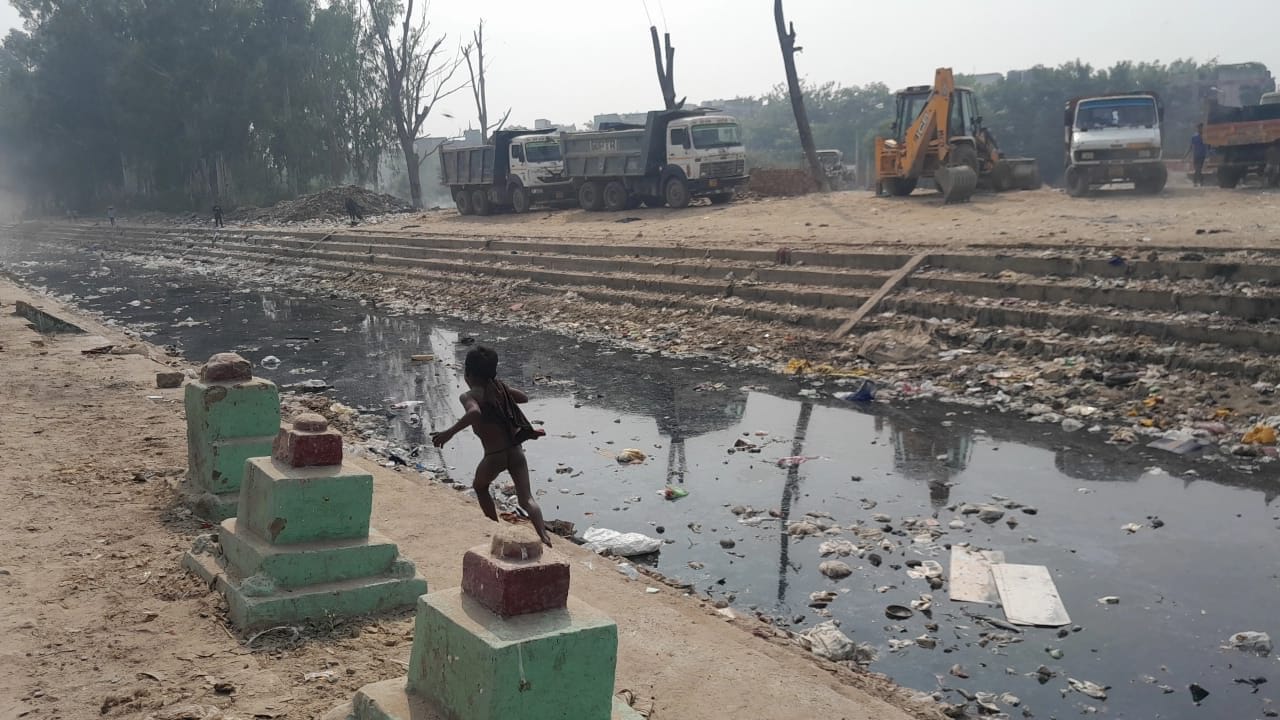
‘Didi, many times, while bathing and washing clothes, we slip into this dirty river,’ laughed Madhu while she continues washing her clothes. One will however find, young boys taking a dip in the neher’s blackened water.
Her eyes looked around to see if anyone else was watching. She was conscious, scared, and careful. Like most women in the jhuggi always are.
Lalita, who stood next to the three girls in a bright orange saree poured water on herself. ‘What are you doing?‘ I asked while trying to click a picture. ‘I am bathing! This is how all the women in the jhuggi bathe madam ji,‘ Lalita shouted as she wiped her face with the wet saree. Her eyes looked around to see if anyone else was watching. She was conscious, scared, and careful. Like most women in the jhuggi always are.

The smoke and chulha in every jhuggi household
Women’s struggles don’t end here. After fetching water for her home, 60-year-old Bhulkun Devi collects wood to light the chulha. Devi has lived in the jhuggi for 20 years with her son who works as a watchman in a school. ‘Crouching on the floor, in front of the chulha has given me a persistent cough. The pain in my knee has also intensified,’ complained Devi. Unable to bear the pain, she insisted her son to buy a cylinder. ‘I purchased the cylinder but could not afford its installation,’ said Harish Kumar, Devi’s son. The cylinder remains unused and like thousands of other women of the jhuggi, Devi suffers with the chulha each day.
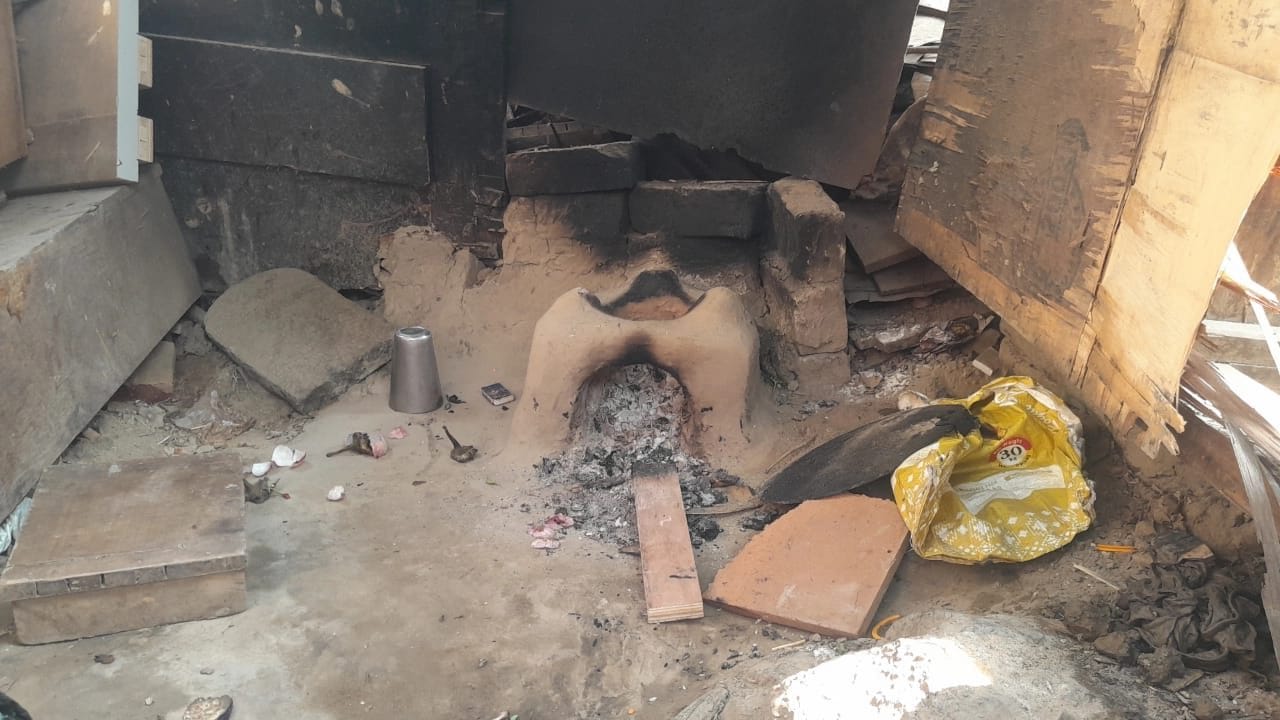
The women claim that every time an inspection is conducted by a government official about the conditions in the jhuggi, they raise the issue of the chulhas along with other matters. ‘The blind government has failed us. They make a note of all our complaints but none of them are redressed,‘ said Sudha Devi. While the government claims that they are constantly working towards improving the conditions in the slum, the dwellers feel otherwise.
Women have now lost faith. They believe that their lives will always be dominated by struggles. ‘Ever since I got married, I have lived in a jhuggi, my daughter grew up here and so will her daughter,’ said Shalini, a single mother who works as a washerwoman. ‘Aurat hona aasan nahi hai‘ (it is not easy to be a woman), she added as she rushed to work.
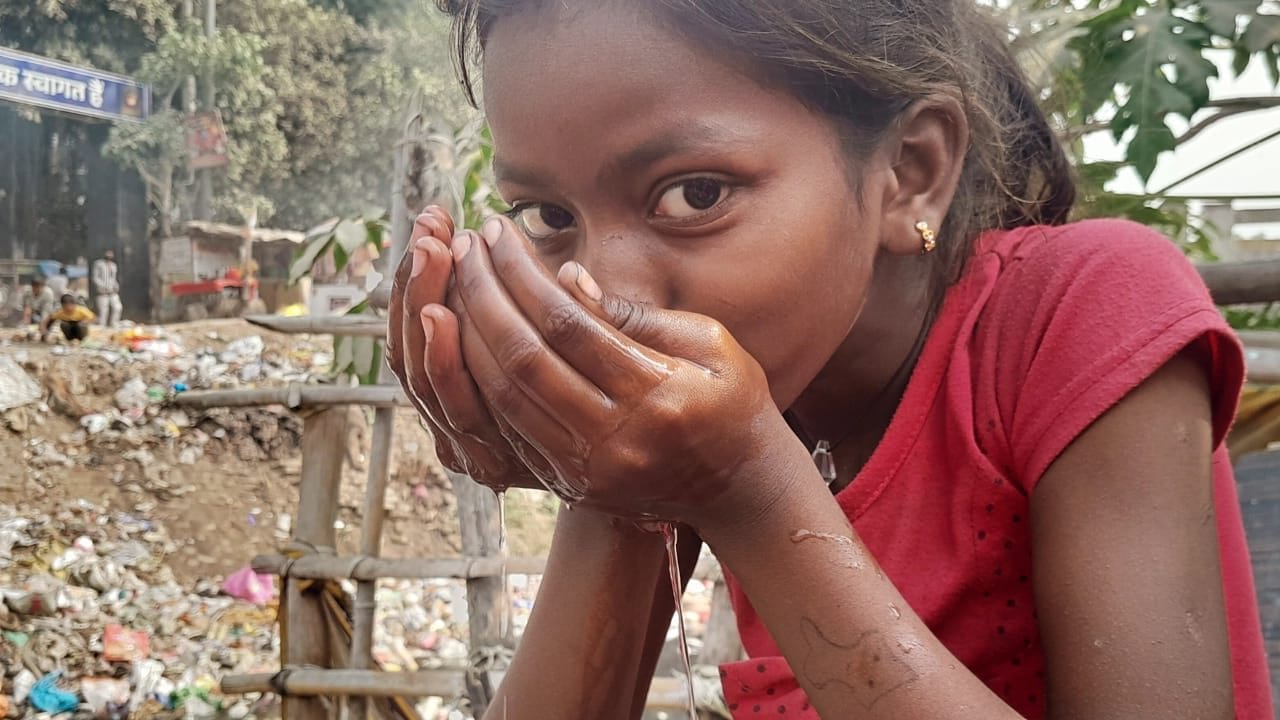


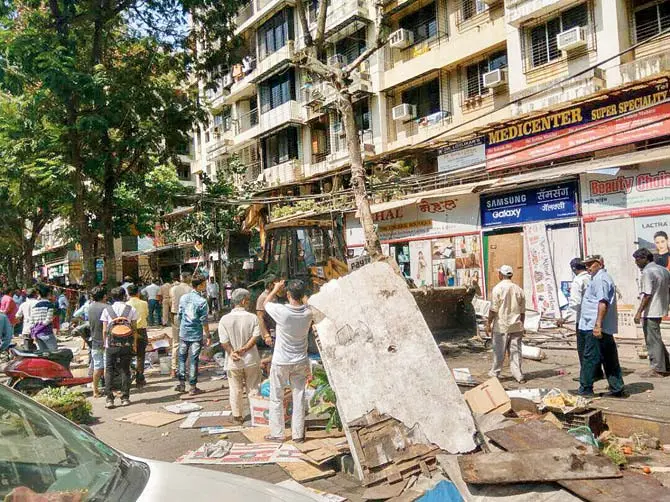


Very important and well reported piece
Thankyou so much!